VTS BIM - A new approach to digital models of air-handling units
In the era of shortening of investment implementation time and the
increasing popularity of the delivery of components in the "Just in
time” system, and also with the growing consciousness of the need to
save energy, a need to optimize investment costs, operating costs and
accelerate investments arose, as well as a need to accelerate the
implementation of the whole process of investment design and
implementation. IT tools and programmes are indispensable here.
Building
Information Modeling (BIM) can be defined as a smart combination of
multiple pieces of information in one place, in one digital model. BIM
is nothing but just a digital reflection of the physical and functional
properties of the whole object and its specific installations or used
components.
There are many programmes available on the market,
offering BIM class. The following ones can be listed here: Autodesk
Revit®, Graphisoft® ArchiCAD®, BIMVision®, Nemetschek Allplan® ,
Nemetschek Vectorworks®, Tekla Structures® , and SketchUp® .
In the MEP branch (Mechanical, Electrical and Plumbing), the
models in the RFA (Revit®) format seem to be the most popular. This file
format makes it possible to develop a multi-branch, parametric digital
model of the building, so it is possible to conduct various analyzes
(e.g. power supply, endurance, maintenance, etc.), leading to the
optimization of the investment before construction works begin. The
analyses are the more precise and reliable, the more accurate the data
and parameters defined in the model are. Therefore, the entire design
industry strives to ensure that only libraries provided by equipment
manufacturers are in use, because they contain a set of parameters
characterizing the individual components of the facility and its
installations.
Producer libraries
More
and more producers provide digital models of their products. Usually
they are only example models or models containing basic nominal
operating parameters with exemplary manner of their connection to
installation connectors . These models are a good solution in the case
of quite simple devices.
Digital models of VTS air-handling units
The
application of air-handling units cooperating with the air ducts system
is related to the need to design adequate system for the whole building
and the specification of the intended use of specific rooms already at
the beginning of the project.
It often happens that the initial
assumptions evolve during the project. The concepts of distribution of
hydraulic, electrical and air systems change, together with the manner
of installation connection to the air handling unit.
In such cases
static producer libraries of devices contain parameters which are
outdated (not following the changes), which on the other hand does not
ensure updated data in the multi-branch data exchange. The libraries can
be modified manually, but this process is extremely time consuming and
fraught with risk of errors.
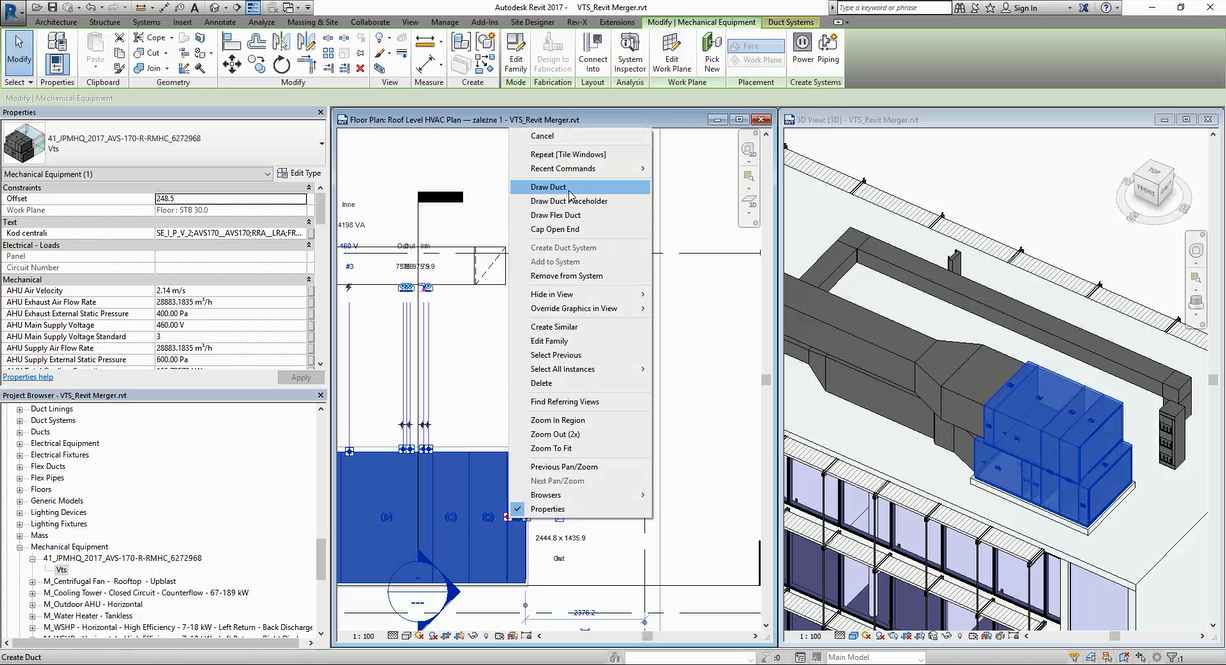 |
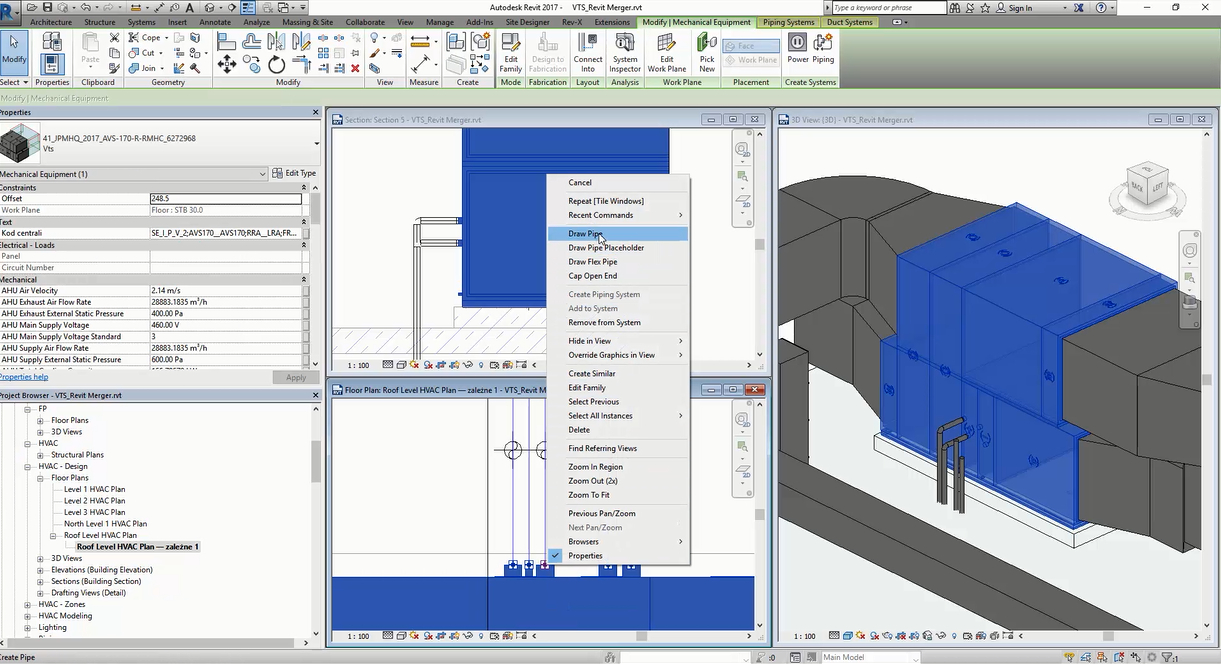 |
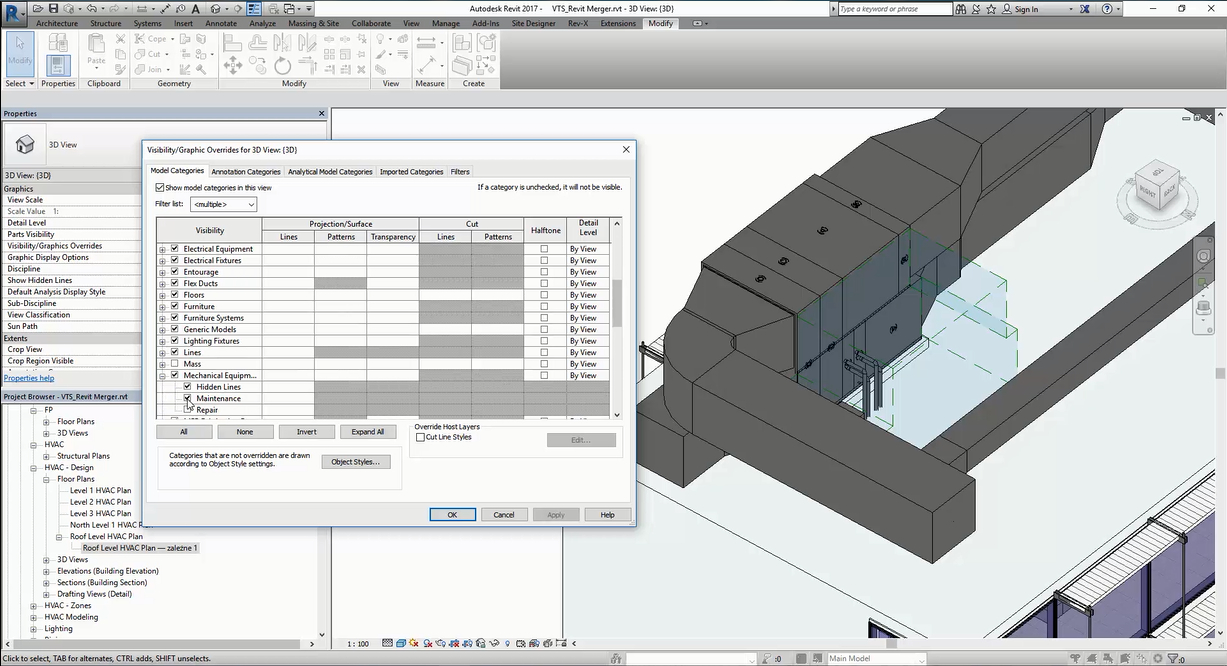 |
In order to meet these needs, VTS has created the
possibilities of generating digital models of VENTUS air-handling models
on-line. This is possible thanks to the implementation of a new
ClimaCAD OnLine 4.0 selection tool, which contains RFA files generator.
The generated objects contain the parametrized connectors:
- air ones,
- hydraulic ones,
- sanitary ones,
- electric ones,
as well as the complete dimensional data, the device maintenance zone and the service (repair) zone.
Connector
parameters are presented both in metric or imperial units, according to
the user’s preferences. Each connector can be used in the Preset or
Calculating mode without the loss of data.
The new object can be generated in just few minutes.
Digital models of WING air curtains and VOLCANO air heaters.
VTS
also provides digital models of WING air curtains and VOLCANO air
heaters. The models contain parametrized electric and hydraulic
connectors. The families are constructed in a manner enabling the
designer an intuitive selection of the correct installation, either
vertical or horizontal, together with the presentation of the range of
air stream. The parameter of any inclination angle of an air heater in
relation to the horizontal plane is available in the case of VOLCANO air
heaters. An adequate air stream has been defined for any position of
device operation. The visualization of air stream scope enables the
designer to distribute the devices in a way that ensures the meet design
criteria.
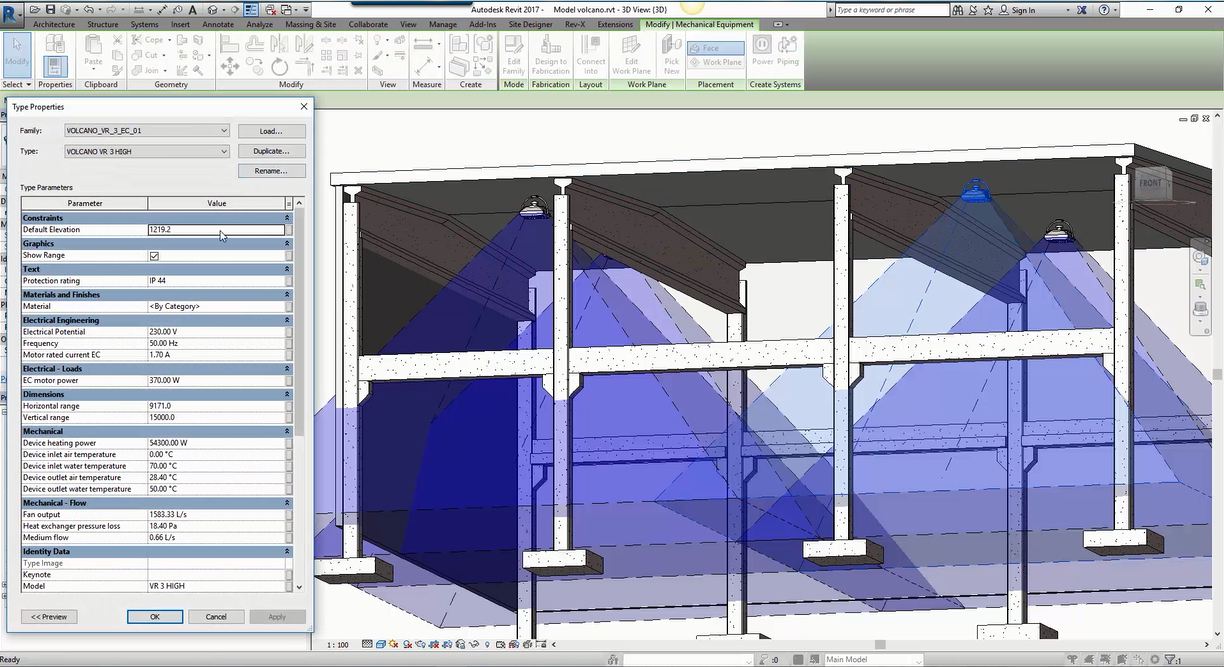 |
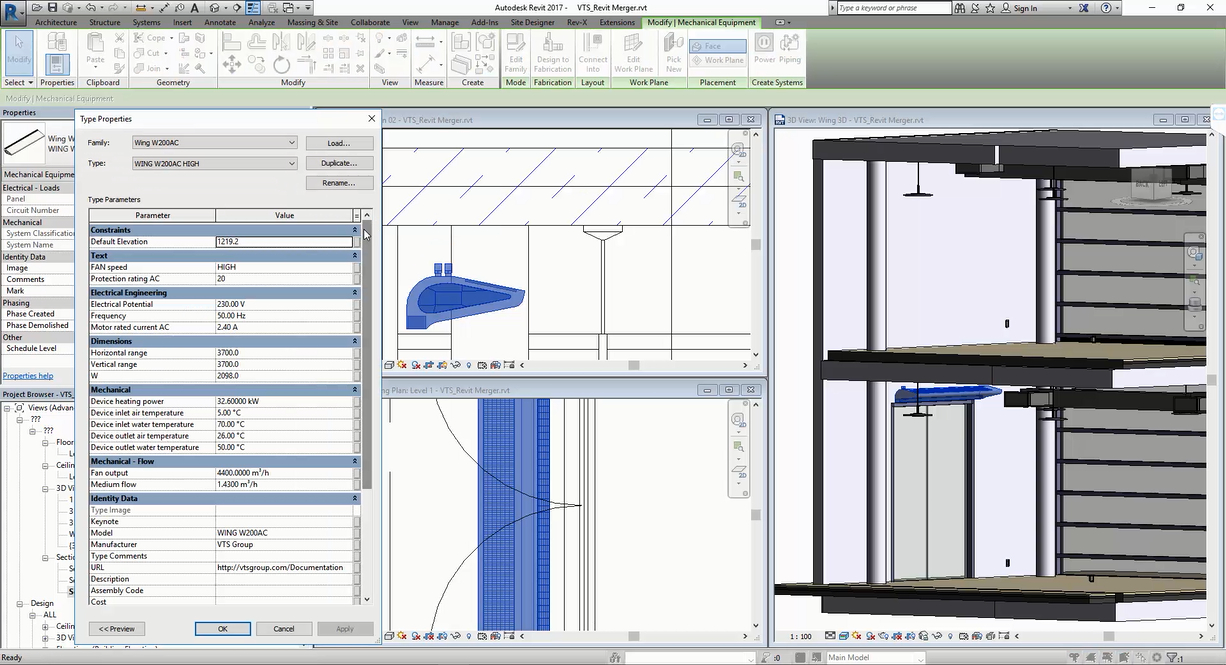 |
The release of so called families for the Autodesk Revit®
environment by VTS makes it easier to design agencies to model the
building installations on the basis of using the same platform. At
present the on-line generator is a unique solution in BIM environment.
It enables the generation of a VENTUS air-handling unit model
practically in no time in any configuration and with any parameters.
 English
English Polski
Polski Germany
Germany LATAM
LATAM Bulgaria
Bulgaria Estonia
Estonia France
France Hungary
Hungary India
India Italy
Italy Kazakhstan
Kazakhstan Romania
Romania Czech Republic
Czech Republic Ukraine
Ukraine United Arab Emirates
United Arab Emirates Latvia
Latvia Lithuania
Lithuania United States of America
United States of America
 Turkey
Turkey